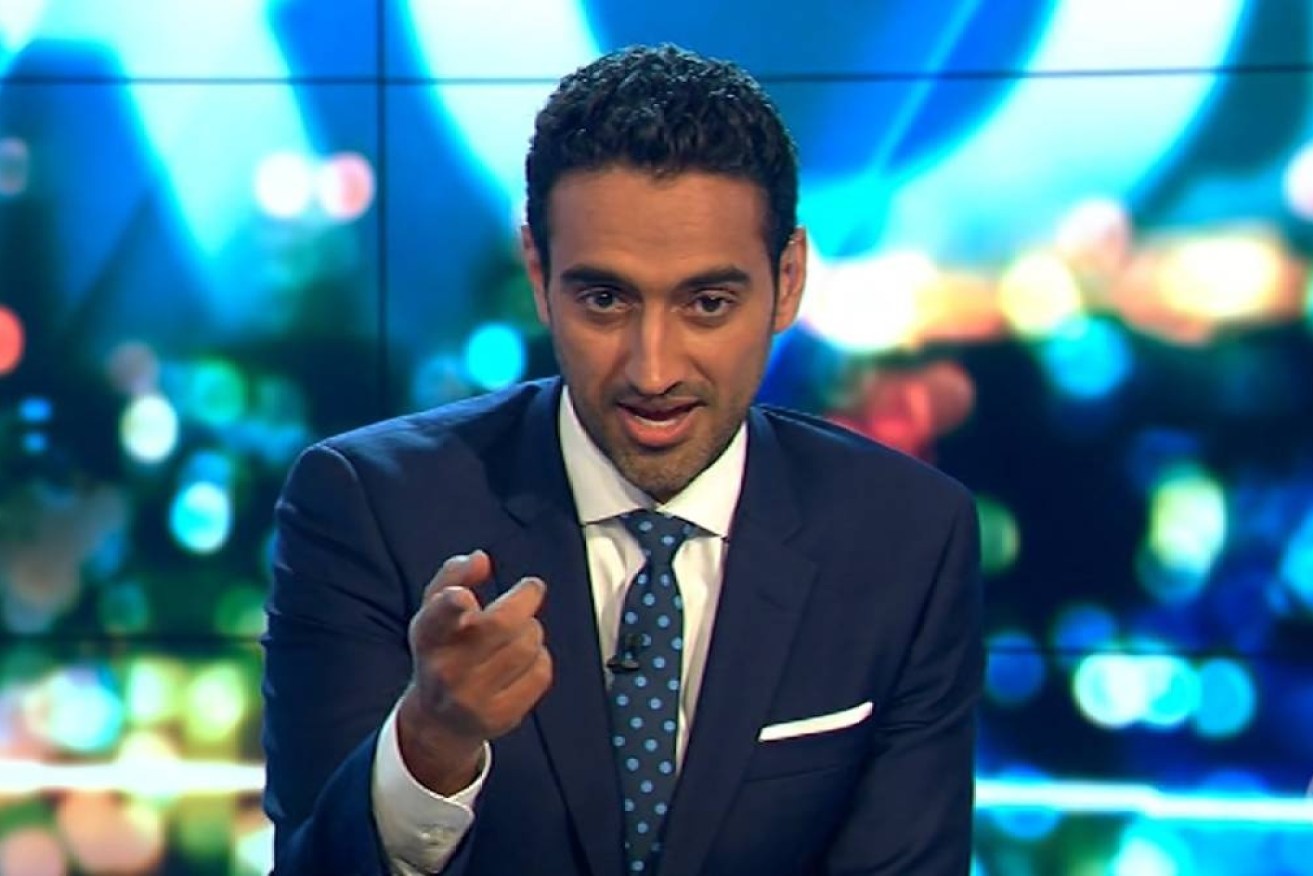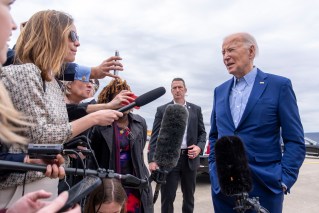Waleed Aly joins The New York Times’ criticism of Australia


Waleed Aly's bogan comment got a swift reaction from viewers. Photo: Network Ten
The New York Times has enlisted popular Muslim-Australian media figure Waleed Aly in its ongoing campaign against Australia’s refugee policy.
The prestigious American paper published an op-ed by Aly on Thursday, its fifth editorial criticising the Australian government’s offshore processing of refugees.
In the piece, titled ‘Australia’s Poisonous Refugee Policy‘, Aly cited an Amnesty International report claiming Australia’s treatment of refugees “amounts to torture” and slammed Australian politics as “a sedative”.
“[W]e can snooze through any bombshell,” Aly wrote, referring to the lack of outrage over offshore processing among Australians.
“These are the starkly utilitarian terms of the policy: We sacrifice the lives of innocent people to dissuade others from risking theirs,” Aly declared.
When contacted by The New Daily regarding Aly’s claims, a representative for Immigration Minister Peter Dutton provided a media release condemning the Amnesty International report as “false and misleading”.
Aly’s editorial has been well received for the most part, but some on social media have criticised him for “trashing” the government on the international stage.
While Aly is certainly one of the most recognisable figures to weigh in on Australia’s treatment of refugees and asylum seekers for The New York Times, he’s not the first.
‘Australia’s Guantanamo problem’

Immigration Minister Peter Dutton has slammed a recent report on Australia’s offshore processing policy as “false and misleading”. Photo: Getty
The paper first addressed the issue back in 2014, when Ben Saul, a professor of international law at the University of Sydney, wrote an op-ed comparing Australia to Guantanamo Bay.
Saul focussed specifically on the onshore detention centres in Villawood and Maribyrnong, both of which house immigrants the government has deemed security risks.
“Few Australians, it would seem, are troubled by the plight of the detainees,” Saul wrote.
“Certainly no sizeable political constituency has expressed concern, perhaps because ‘boat people’ are generally unpopular.
“But perhaps the larger problem is that, since reporting inside detention centres is restricted, the refugees have largely remained invisible.”
‘Brutal treatment’
In 2015, The New York Times again criticised Australia’s policies with an article from the paper’s editorial board.
The editorial said Prime Minister Tony Abbott’s policies were “inhumane, of dubious legality and strikingly at odds with the country’s tradition of welcoming people fleeing persecution and war”.
‘Offshore cruelty’
In May this year, Times columnist Roger Cohen penned a scathing op-ed about Australia that referenced our history of human rights abuses.
Scrap a policy that shames a nation with its pointless cruelty.
“This country’s history includes the long and unhappy chapter of its White Australia policy under which a vast land mass was portrayed as under threat of invasion by uncivilized ‘natives’ from across Asia,” Cohen said.
“Politicians like Dutton are playing scurrilously on similar fears.”
Cohen urged the government to “scrap” the offshore detention policy, “a policy that shames a nation with its pointless cruelty”.
‘Stranded prisoners’

The New York Times executive editor Dean Baquet. Photo: Getty
Most recently, the Times ran another editorial just one week before Aly’s contribution, on ‘Australia’s stranded refugee prisoners’.
“While the number of refugees held on Nauru and Manus Island is small compared with refugee numbers in the Middle East and Europe, Australia’s inhumane imprisonment of desperate people is a disgrace,” the strongly worded article read.
A hidden ultimatum
While the Times‘ preoccupation with Australian policy is warranted given the attention it has received in recent months, the paper has another reason for its plethora of editorials.
In August this year, the paper confirmed it had plans to expand to the Australian market.
“We believe there is likely a large community of potential NYT subscribers,” head of communications Eileen Murphy told Crikey.








